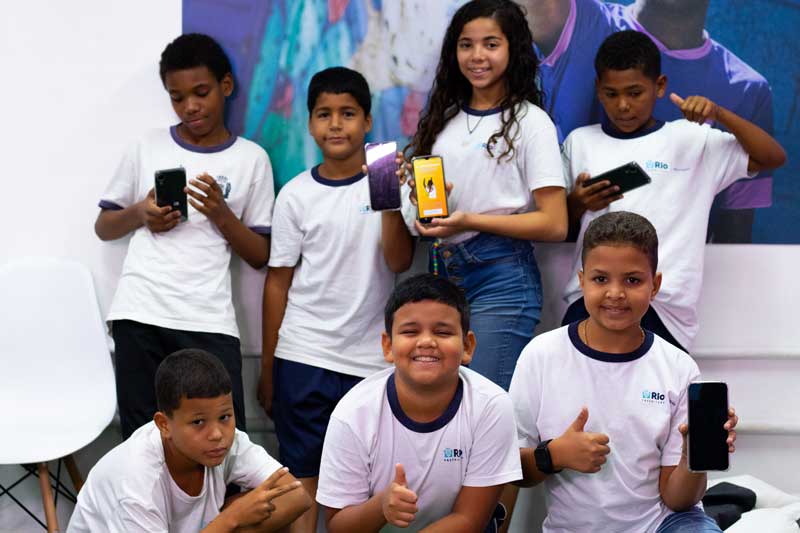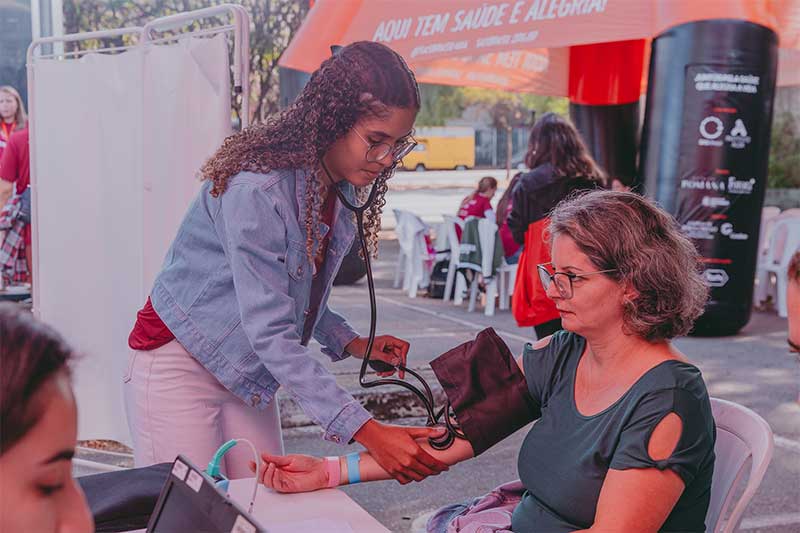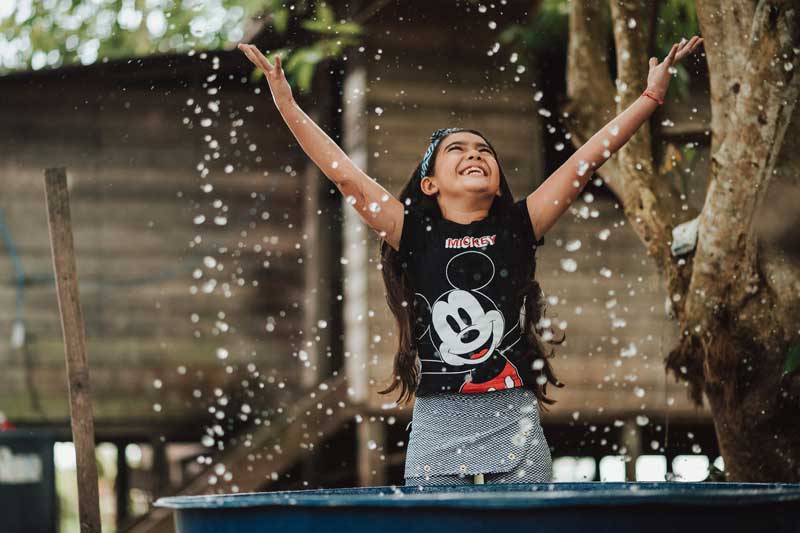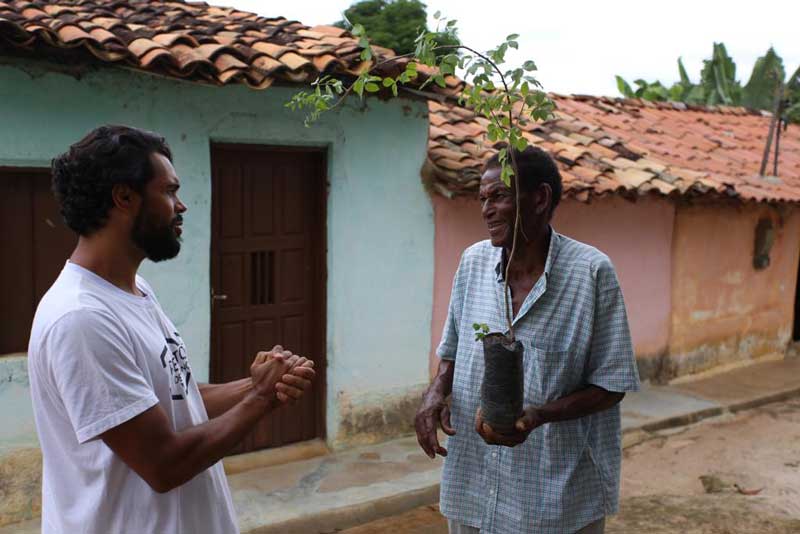The Alok Institute has partnered with the Instituto Comida e Cultura, founded by Bela Gil, along with professionals working in defense of education and healthy, adequate food, especially among children and youth.
The Alok Institute now supports the “Kitchens & Infancy: Connecting Knowledge and Practices of Healthy Eating in Early Childhood Education” contest, organized by the School Feeding Coordination (CODAE) of the São Paulo Municipal Department of Education, the Instituto Comida e Cultura (ICC), and the School of Public Health at the University of São Paulo (FSP-USP), with the awards scheduled for November 2024.
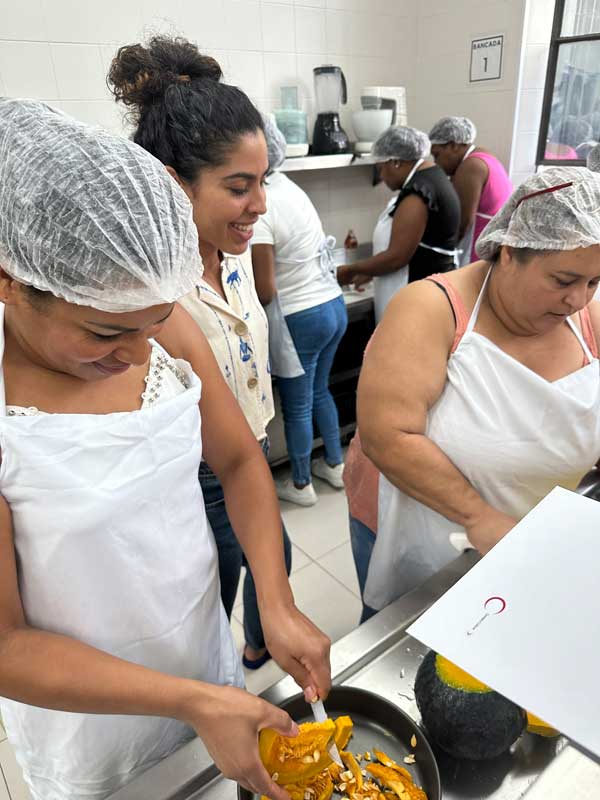
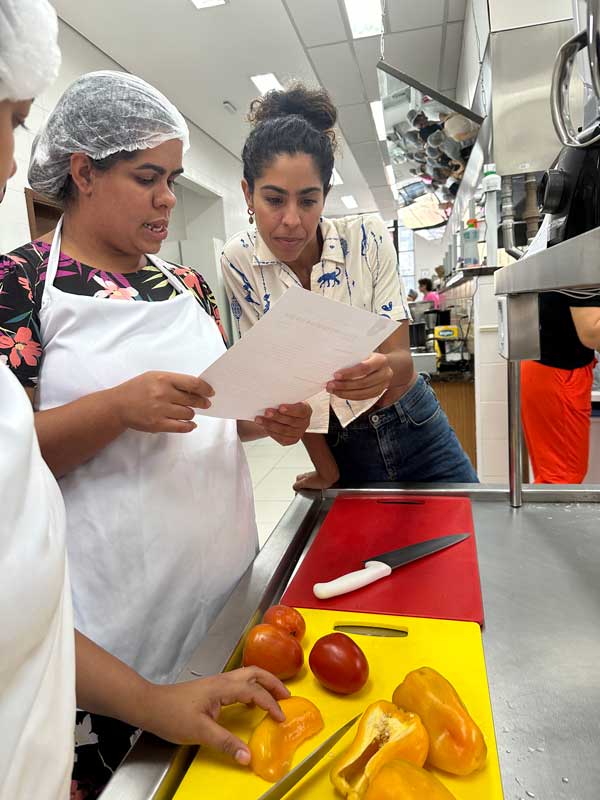
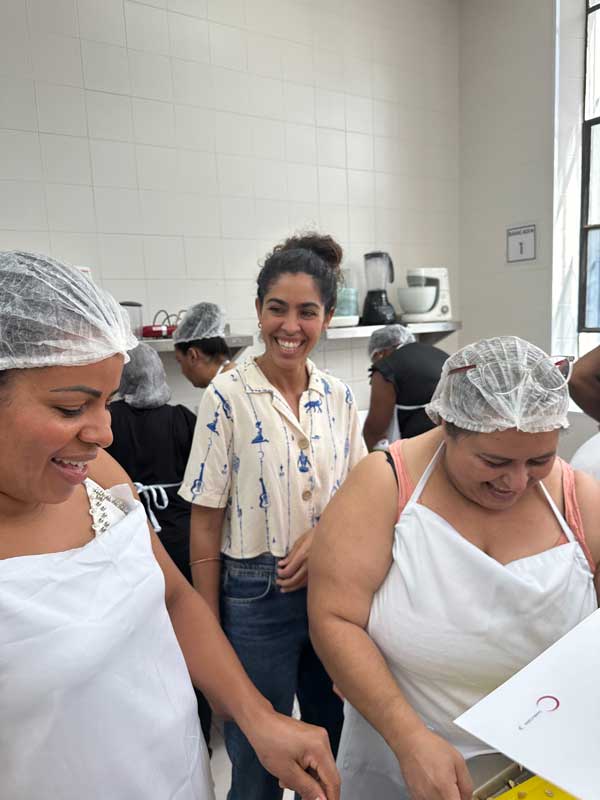
The goal of the competition is to promote the development of Food Education projects in the Municipal Early Childhood Education Schools (EMEIs) and Municipal Centers for Early Childhood Education (CEMEIs) in São Paulo.
This partnership also strengthens the Kitchens & Infancy program, developed by the ICC for the training of educators, teachers, school administrators, nutritionists, and school cooks in food education, with the aim of prioritizing adequate and healthy food as a universal right and guiding schools to include Food and Nutrition Education (EAN) in their curricula, starting from early childhood.
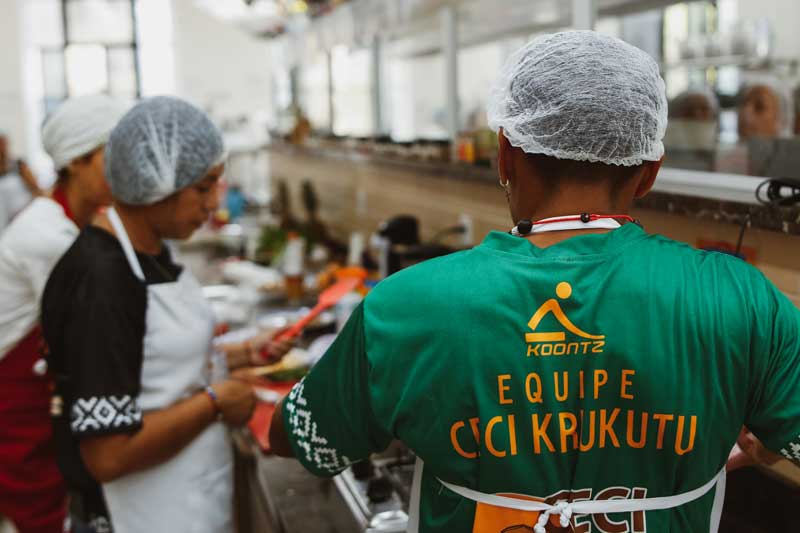
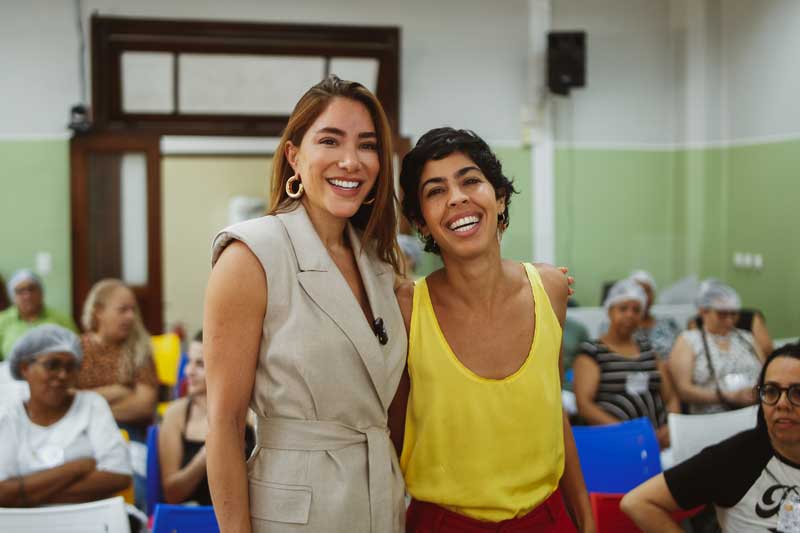
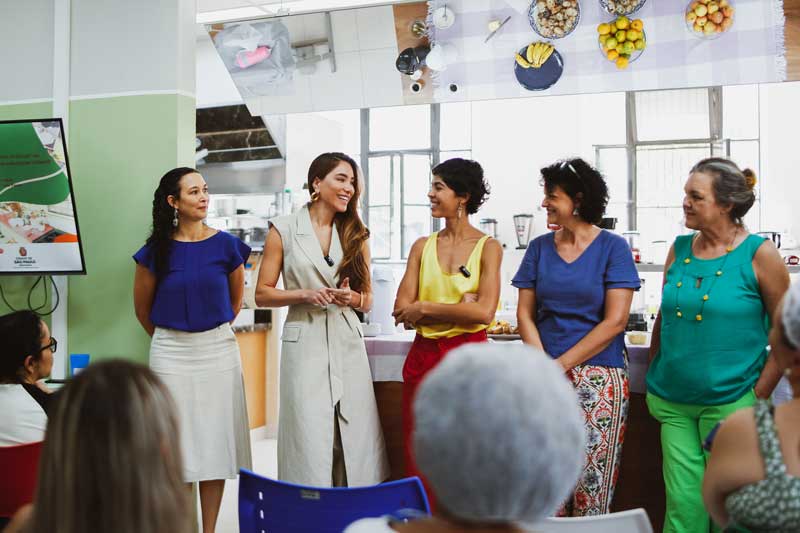
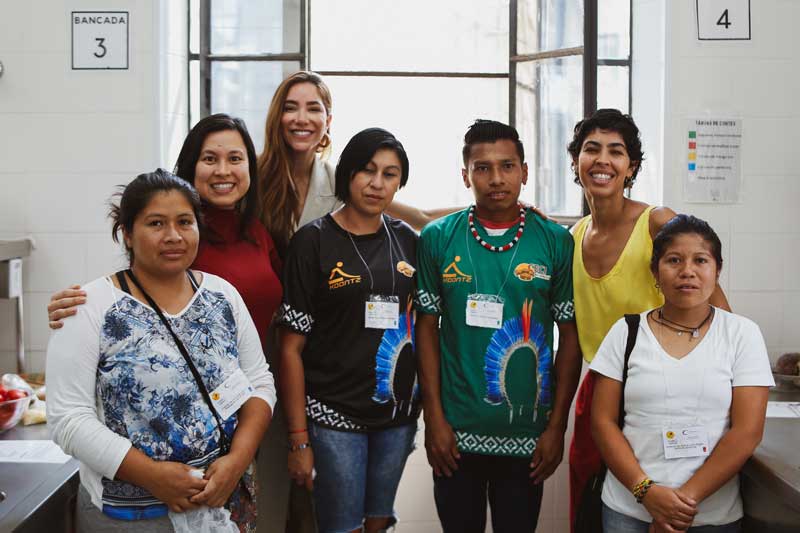
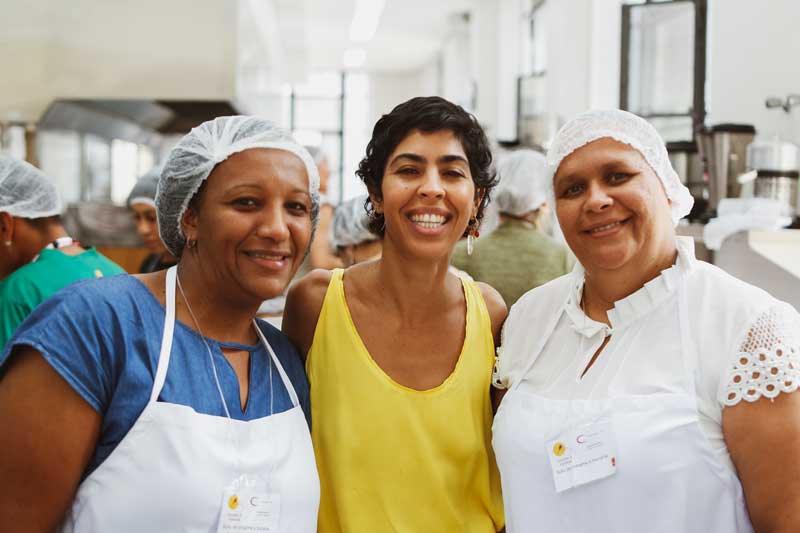
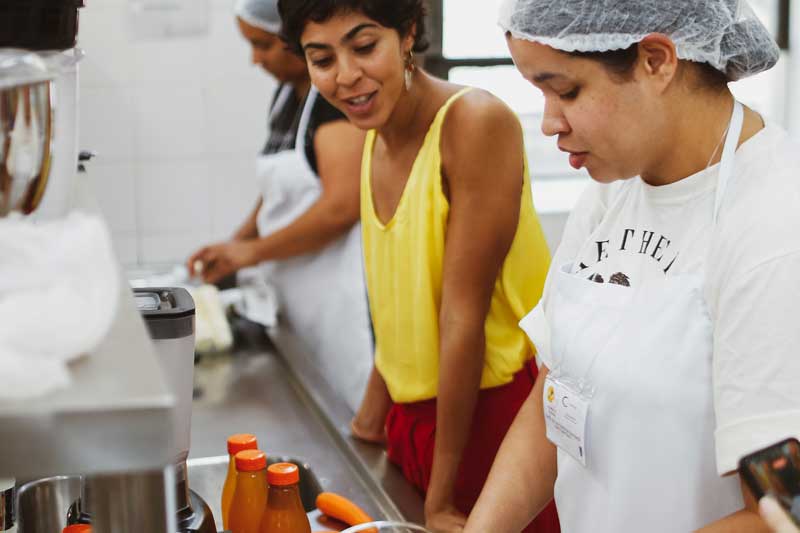
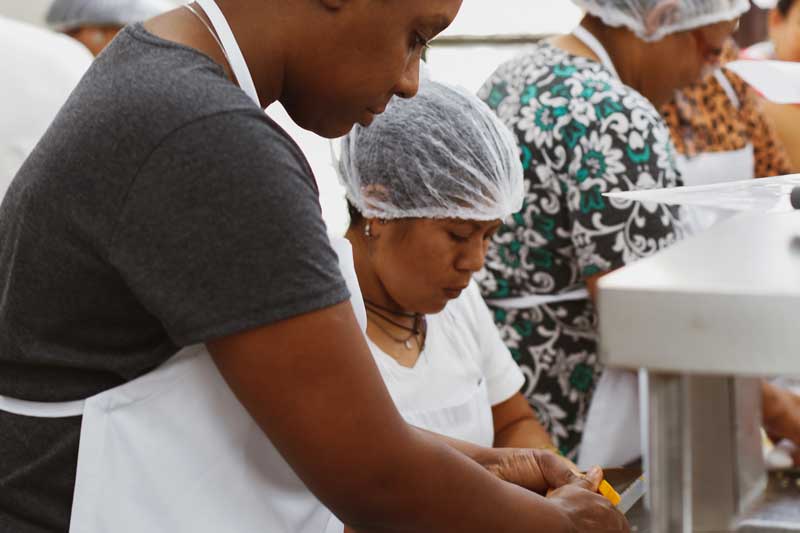
In September 2024, the fourth module of the training program aimed at school cooks in the São Paulo early education system was completed.
The event was attended by Romana Novais, doctor and co-founder of the Alok Institute, as well as Bela Gil and representatives from other partner organizations.
Indigenous cooks from the Krukutu and Tenondé Porã communities also participated in the event, sharing their experiences with the children from the indigenous schools.
The training included both a practical kitchen session and a theoretical class, which discussed the arrival of Africans in Brazil and the lasting impacts of enslavement on current lifestyles and food systems.
The Kitchens & Infancy training program has been developed in the city of São Paulo since 2022, integrating knowledge and practices in alignment with the National Common Curricular Base (BNCC), the National Curricular Guidelines for Early Childhood Education, and the School Curriculum of the City of São Paulo. The goal is to contribute to expanding knowledge, cultural repertoire, scientific, creative, and critical thinking, self-awareness, self-care, self-confidence, leadership, empathy, and cooperation in children’s lives.Starting in 2023, Kitchens & Infancy has been implemented in the 546 EMEI and CEMEI units in São Paulo, with the participation of 602 teachers, nutritionists, and school administrators. In 2024, around 580 school cooks and nutritionists are expected to complete the training.
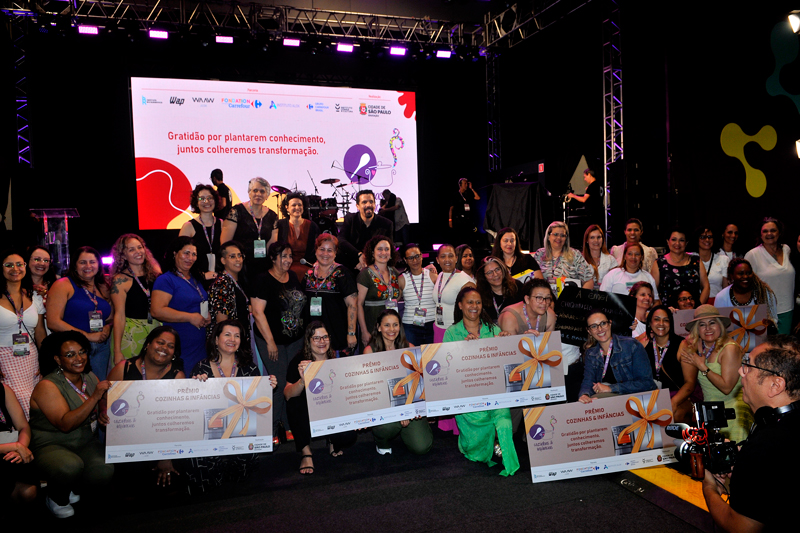
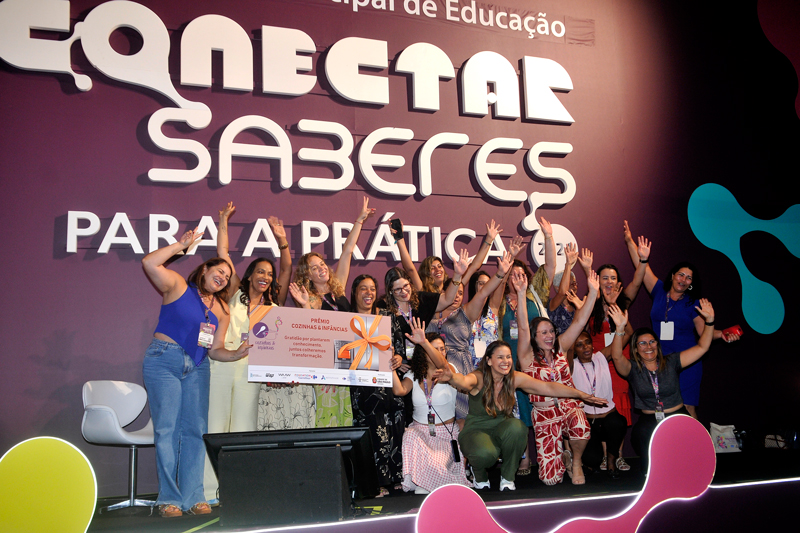
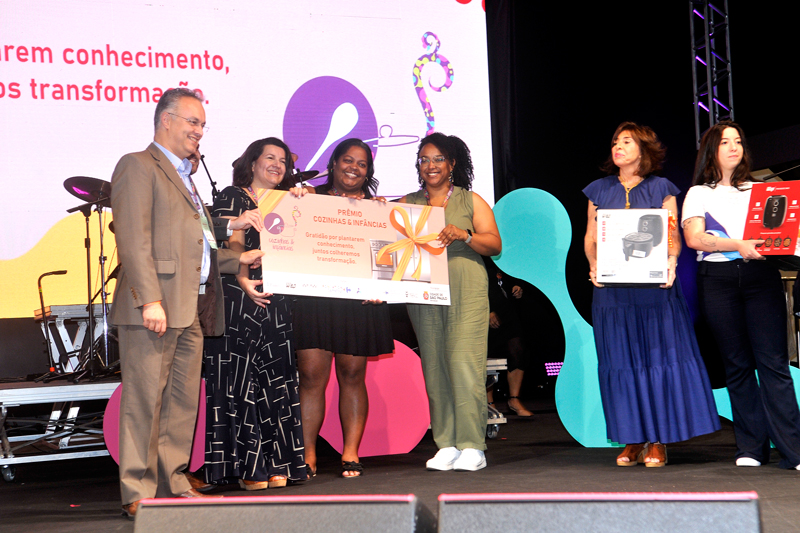
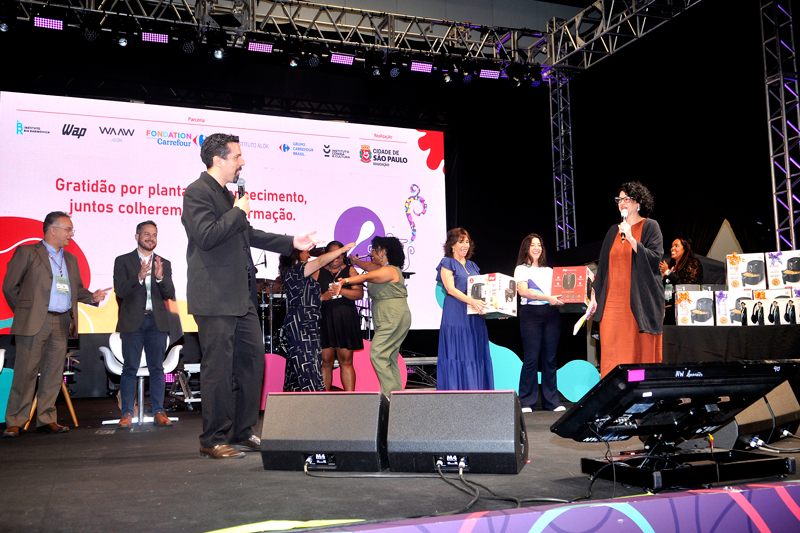
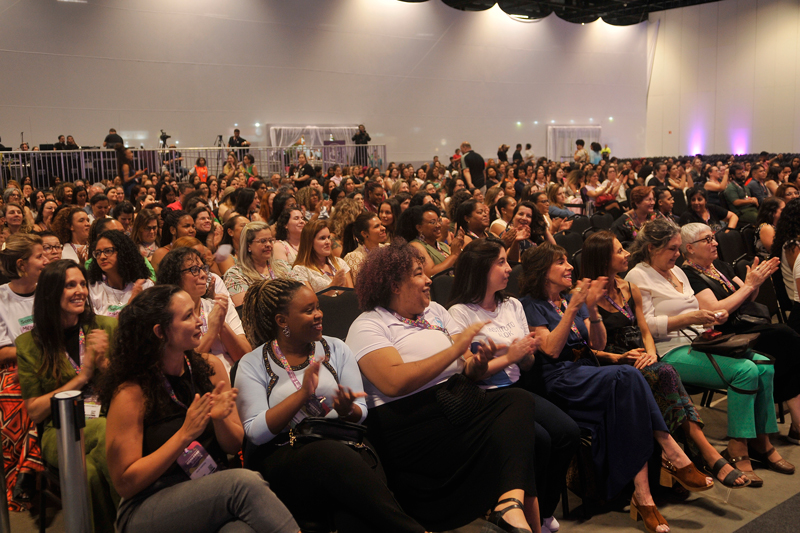
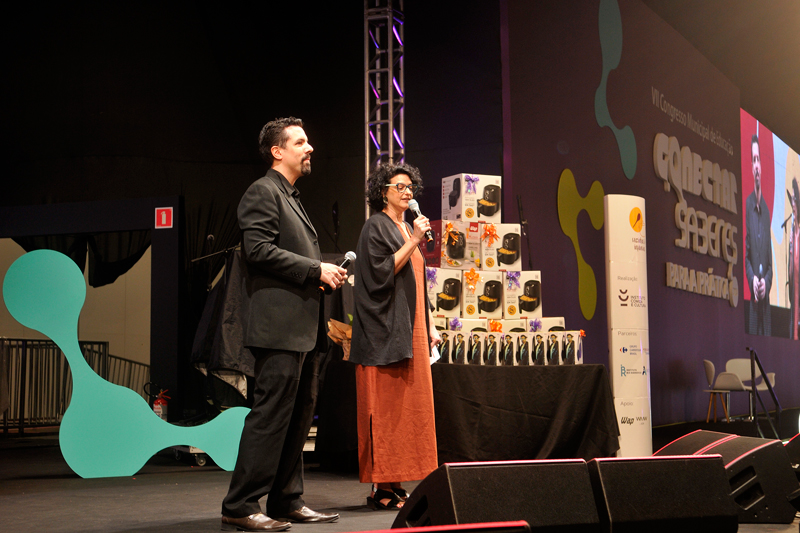
About the Comida e Cultura Institute
The Comida e Cultura Institute (ICC) aims to reconnect children with food through a playful recovery of Brazilian history, culture, and biodiversity. It works with the training of educators and other actors involved in the child’s comprehensive development to inspire healthy practices, promote debates, and incorporate the healthy food theme into educational curricula.
Founded by Bela Gil, Ariela Doctors, Daniella Brochado, Erika Fischer, and Juliana Furlaneto in 2021, the ICC extends its activities to fostering public policies related to food and environmental education.
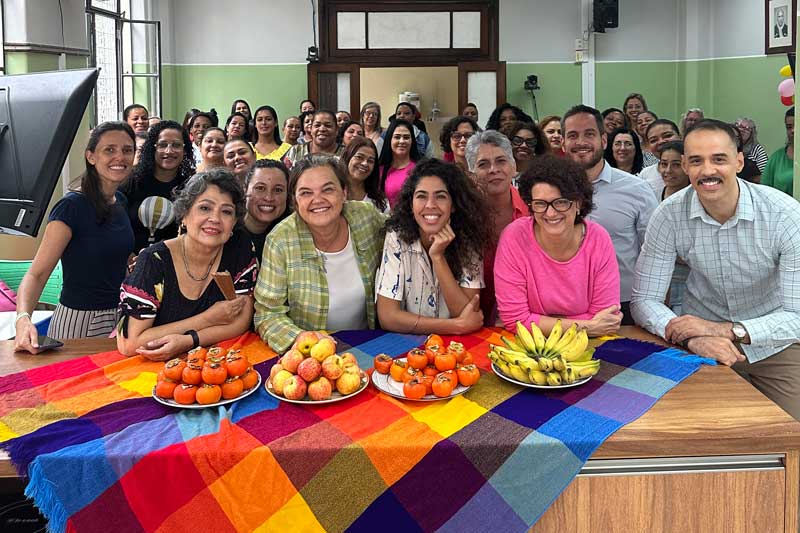
About the Cozinhas & Infâncias Program
Cozinhas e Infâncias is a training and qualification program for educators, based on the Food Guide for the Brazilian Population, articulated with children’s practices and experiences. Started in 2022, the program includes educational training and practical application in schools, aiming to promote a healthy and conscious relationship between children and food by preparing educators with essential concepts and practices.
Comida e Cultura Institute Manifesto
“Food transforms. It transforms minds, bodies, and territories. Food heals or makes ill, comforts or drives mad, nourishes or malnourishes, regenerates or destroys.
Guiding children through modern and ancestral knowledge, giving them material and intellectual tools, and encouraging the act of cooking so they can make healthier choices for themselves, others, and the planet is our priority.
A child who grows up eating well is unlikely to live poorly. A child who understands the nutritional, social, and environmental impacts of food is unlikely to eat poorly. Socially responsible children will hardly leave others behind.
How and what we put on our plate today defines the future of humanity. We believe in food education as a tool for transforming a fairer food system, healthier people, and more peaceful territories.”

